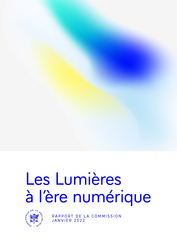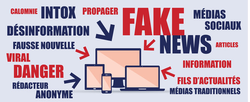
Oct. 9, 2024
Publications

🌐follow Marie-Anne Frison-Roche sur LinkedIn
🌐subscribe to the Newsletter MAFR Regulation, Compliance, Law
🌐subscribe to the Video Newsletter MAFR Overhang/Surplomb
____
 ► Full Reference: M.-A. Frison-Roche, Monumental Goals, normative anchoring of Compliance, Working Paper, February 2025.
► Full Reference: M.-A. Frison-Roche, Monumental Goals, normative anchoring of Compliance, Working Paper, February 2025.
____
🎬This working document has been drawn up to serve as basis to
the video Overhang👁 of the 1st February 2025: click HERE
____
🎬🎬🎬In the collection of the Overhangs👁 It falls into the Notions category.
►Watch the complete collection of the Overhangs👁 : click HERE
____
► Summary of this Working Paper: Compliance, of which conformity is only one instrument (the 2 should not be confused), must be understood through the ‘Monumental Goals’ : political ambitions pursued by the public authorities and internalised in the entities in a position to achieve them, i.e. large companies.
These Goals are Monumental in that they concern systems: ensuring that these systems do not collapse in the future = ‘Negative Monumental Goals’ (e.g. fight against corruption, against climate change); more ambitious still, they may aim to improve systems = ‘Positive Monumental Goals’ (e.g. effective equality between women and men).
Their systemic nature gives rise to Systemic Litigation.
____
🔓read the developments below⤵️
Oct. 24, 2022
Thesaurus : Convention, contract, settlement, engagement
► Référence complète : S. Merabet, Le Digital Services Act : guide d’utilisation de lutte contre les contenus illicites", JCP G, n° 42, octobre 2022, doctr. 1210, pp. 1958-1964
____
► Résumé de l'article (fait par l'auteur) : "Le Digital Services Act ambitionne de responsabiliser davantage les fournisseurs de services d’intermédiaires. Si les règles favorables de responsabilité qui leur profite demeurent très largement inchangées, le texte multiplie les obligations à leur charge. Les autorités européennes entendent en finir avec des règles qui pour l’heure permettent trop souvent aux hébergeurs de se soustraire au contrôle des contenus en ligne. Ce sont essentiellement les plateformes qui sont concernées, avec une attention toute particulière portée aux plus grandes d’entre elles. Le règlement conserve des obligations antérieures, en renforce d’autres et surtout en consacre de nouvelles. Ces obligations n’ont pas toute la même intensité, mais certaines devraient avoir une influence déterminante sur les pratiques des plateformes à l’avenir. L’objectif principal du texte est de lutter contre les contenus illicites et son architecture est pensée à cette fin sans pour autant sacrifier les droits des destinataires des services.".
____
🦉Cet article est accessible en texte intégral pour les personnes inscrites aux enseignements de la Professeure Marie-Anne Frison-Roche
________
Jan. 11, 2022
Thesaurus : Doctrine

► Référence complète : Commission "Les Lumières à l’ère Numérique" présidée par Gérald Bronner, Rapport de la Commission. Les Lumières à l'ère numérique, janvier 2022, 124 p.
____
________
March 29, 2021
Compliance: at the moment

Dec. 24, 2019
MAFR TV : MAFR TV - case

Watch the video commenting on the decision of the Commission des sanctions of the Autorité des marchés financiers - AMF (French Financial Market Authority Sanctions Commission).
Read the decision.
_______________
In 2015, a document supposedly emanating from the Vinci company reached the Bloomberg media announcing unexpected catastrophic results. The two journalists who received it immediately published it without checking anything, the Vinci listed shares losing more than 18%. It was a rude forgery, which a basic check would have established, a check which the journalists had not done.
4 years later, the Bloomerg company is punished for the breach to "disseminate false information" on the financial market, by a decision of the Sanctions Commission of the Autorité des Marchés Financiers (French Financial Markets Authority) of December 11, 2019.
The company being sued argued that it was up to journalists to be accountable and not to itself, because on the contrary the firm had implemented both detection software and a code of conduct, even though there was no legal rule constraining it. In consequence, it would not possible to pursue it.
But the AMF Sanctions Commission stresses that, independently of this, it is a general rule of ethics for journalists that obliges them to verify the authenticity of the documents they publish, which they did not, whereas an elementary check would have allowed them to measure that it is a rude forgery.
In addition, the Sanctions Commission refers to the European Regulation on market abuses which in its article 21 targets the special status to be reserved for press freedom and the special status of journalists, but associates this ethical obligation to verify documents . However, the Sanctions Commission notes that this obligation, which was targeted by both the journalists' ethics and the reference text of Financial Law, was completely ignored by the two journalists. It is therefore up to the press agency to be accountable and to be punished.
However, the media entreprise maintained that the balance between the principle of freedom of the press and the principle of freedom of opinion on the one hand and the principle of the protection of the financial market and of investors against false information disseminated requires an interpretation of the European Union Law, which must oblige the Sanctions Commission to ask a preliminary question to the Court of Justice of the European Union.
The Sanctions Commission dismisses this request because it considers that the European texts are "clear", which allows the Sanctions Commission to interpret them itself. And precisely the European Regulation on market abuse in its article 21 provides for the exception in favor of the press and journalists but compels them to respect their ethics, in particular the verification of the authenticity of documents. In this case, they did nothing. They are clearly the authors of a breach attributable to the company.
________
In a less clear case, one could consider that this balance between two principles, both of public interest, is delicate and that an interpretation by the Court of Justice would always be useful.
Indeed and more fundamentally, does Financial Law remain an autonomous Law, putting first the objective of the preservation of the integration of the financial market and the protection of investors or is it the advanced point of an Information Law protecting everyone against the action of any "influencer" (category to which Bloomberg belongs) consisting in disseminating inaccurate information (notion of "misinformation")?
And that is not so "clear" ....
_____________________